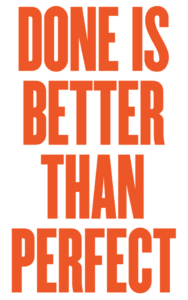
To know me is to know that I love tennis. I enjoy the competition and am grateful for the friendships that have grown on the courts. As a novice, getting better every day is my jam.
Lately, I have been itching to inject newness and unfamiliarity into my game. So, when asked to join a new league this season, I jumped at the opportunity to spice things up.
As I navigate in new terrain, it is evident that I have a lot to learn, hence the switch. But what remains is this, the game of tennis offers invaluable life lessons. Here is my list of life lessons that reaffirmed my perspective in my quest to share all things.
1. Never, ever judge a book by its cover
I got served this lesson early in my tennis’ fun.’ Maxine, an opponent, walked gingerly on the courts wearing a knee and elbow brace. My partner and I made tons of assumptions based on her age, seventy years young. (Yup, you read it correctly, she was seventy) Our overconfidence was short-lived. Maxine proceeded to give us a proper beat down. The game was over in a flash. Ouch! It turns out the sweet, polite, charming, mature Maxine was a lifelong player. And on this day, her job was to teach a couple of newbies a hard lesson– never underestimate your opponent. As I swallowed giant bites of humble pie, I realized I did what I told my children never to do; I judged a book by its cover.
This reminds me of the revenge scene in Pretty Woman, where Julia Roberts character returns to a shop whose employees initially snubbed her because of her appearance. She returns with her arms filled with shopping bags and asks, ”Do you work on commission?” The woman confirms she does. ”Big mistake. Huge!” Robert’s character says -alluding to the commission if only she’d agreed to help the first time around. This is what I imagine Maxine whispering to herself as she served aces, big mistake, girls!
Note to self, don’t be an ass, Mic. Don’t put people in a box. Assumptions on my part are shortsighted and arrogant; one size does not fit all. We should all heed this advice and reserve assessments until ample time has been given to peel the layers. Otherwise, stick to respecting all. (people and opponents)
2. Ego is not your amigo (as one of my favorite Peloton instructor likes to say)
Tennis is a game of integrity and principles. We are expected to make honest calls even if we lose a point, and the opponent gets the ‘W.’ In is in, out is out, so you can appreciate the frustration when people cheat. Sadly, bad calls happen a lot. The pressure to win is high for some. Some feel judged if they don’t get a W; others let their competitive nature take over; whatever the case, people will cheat to manipulate the results.
And if they can’t win, sore losers will still find a way to point a finger. The ego loves to show off during vulnerable moments, such as after a loss. Be suspicious of folks who immediately throw their partner under the bus. This tactic stems from a lack of confidence; fingers get pointed at the other players instead of looking inward.
It’s a character flaw and indicative of how people treat people in all areas of life. The ego is never introspective. (Unless it produces a win- then it was all about their incredible talents)
Consider the areas in your life that your ego is snatching things up? Are you able to allow things to flow without having an immediate reaction and judgment? Or is your ego taking over by dictating the brands you buy, the people you call friends, and the photos that you post?
Perhaps the mere mindfulness of this shift can create space and allow positive thoughts, energy, and outcomes to flourish. At the end (of a game or life), our character should trump performance (ego).
3. Feet don’t fail me now
Position, movement, preparation, and shot selection are all crucial aspects of the game. It is knowing when to be patient and when to move and close the net. Sometimes we need to reset, take a few steps back, go backward before going forward again.
Isn’t this the case with most things in life? We can’t muscle (force) our way to wins standing on the baseline. We need to be nimble, adapt, and shift gears often and quickly by staying on our toes.
Remember, progress comes when we keep an eye on the prize (the ball/a goal) and move our feet in the direction of our dreams. No matter what, keep moving forward, knowing when to use a drop shot (finesse) and when to smash the ball.
4. Don’t play small
I win, and I lose. I rarely remember the wins but always remember the losses, especially when I play small, scared, tight, or safe. Nothing bugs me more than this, dimming my light with insecurities. Too often, I have walked off the courts and said they (opponents) did not win; I lost. Meaning I beat myself.
It is mighty to realize how much control we have and yet how quickly we give it away. The six inches in our head (the brain) has the power to accomplish greatness; it can also derail any situation.
Have you ever noticed Novak Djokovic between sets? He purposefully closes his eyes to meditate and gets centered before approaching his next game. We need to do more of this, take control of our headspace to get back to the business of living big.
It starts with our mindset; we must learn to control our thoughts to realize a complete transformation. We need to stop advocating for our limitations and play up our strengths.
5. Success in mundane
Practice, practice, practice! Repetition matters in developing all healthy habits. It is striking and serving thousands and thousands of balls. It’s not always fun but necessary. Success in tennis (& life) is incremental. The only way to achieve greatness is by hours (upon hours) of practice.
No matter what you are attacking (diet, finances, building a company, a blog), it comes down to the mundane—doing a million little things daily to move in the direction of your goals. It is completing the reps at the gym, putting words to paper, spending less, etc. It is not sexy, but worth it.
6. Learn to dance
If you play doubles, you know that communication (non-verbal, too) is everything. Doubles play is a dance; the more synchronized you are, the more success you will achieve.
It’s hard to succeed if you keep stepping on your partner’s toes. You can’t be giving your partner the stink eye after an error and expect a relaxed environment to thrive. You need to communicate when you ‘got’ the shot, when you need ‘help’ and when you need your partner to ‘stay.’
Good communication skills are essential; to resolve conflict, offer support and improve all areas of life. Ultimately, we seek to nurture and value our partners (people) by exchanging information and fostering a positive environment.

7. Personality traits on/off the courts
Recreational tennis serves up many types of players. Understanding and identifying their intent makes the games more enjoyable. Here are a few standouts:
The athlete: ultra-competitive, serious, and focused on the courts; growth mentality.
The socialite: Lunch, anyone? Leisure players are concerned with selfies, cute skirts, and pinot grigio. The game is simply an excuse to get together with friends.
The RockStars: funny, speak their minds, see the ridiculous in all of it, experienced, supportive, calm, win or lose, they have a great time.
Wounded birds: unstable; cynical; self-obsessed; vomit all their sagas; have meltdowns; fight with team members and opponents; desperate for love, attention, to be heard.
The one-woman show– always cracks a joke and has gossip to share. For the most part, they fly solo but blossom with an audience.
Know your peeps. The athlete is focused on challenging themselves and strategically chooses situations to improve. The Rockstars are happy to get a workout in and play tennis. You are not likely to find them in the courts with a basket of balls practicing serves, but they will do whatever it takes to protect their spot on the happy train (their tennis time). The socialite and the athlete do not mix well on the court and should avoid training together. The wounded bird needs a hug …see how knowing the difference simplifies things?
Know the player (people), their styles (personality/strengths), and manage expectations, and you will never be disappointed. This, of course, applies to all areas of business, family, friends and, teams.

8. I am sorry
Fact: We (women) apologize for way too much.
Seriously, it is a constant stream of apologies. I am sorry I missed the ball; I am sorry I double-faulted, I am sorry I missed the volley. Honestly, who plays the game intending to mess up? No one. So stop saying sorry every time you make an error.
I ask my partners to consider eliminating sorry from the game. I explain that if they start apologizing, I, too, will feel obliged to apologize. And since I make a lot of unforced errors, this could mean an entire match singing the ‘I am sorry’ song.
This is much easier said than done. It turns out apologizing is deeply rooted in a woman’s psyche. It is right up there with deflecting. Consider this, how often does someone compliment you, and instead of saying thank you, you are quick to flip the praise. We (women) can’t even take a compliment.
Stop apologizing.
9. It ain’t over till it is over
The points can be quick. And sometimes, the game gets away from you. But it ain’t over till it is over, so never, ever give up. Adopting this principle will host plenty of epic comebacks. Run the ball down, get ready for the next shot, and never stop playing.
And when you fall, get back up and try again. Keep fighting to do better and be better. It’s never too late to chase your dreams; it ain’t over yet; get back in the game.

10. Love ALL
No further explanation is needed; Say it, mean it, Love ALL.
These simple and powerful themes are not new but worth remembering.
Keep Illuminating,








0 Responses
Love you partner! Double trouble!
Xo